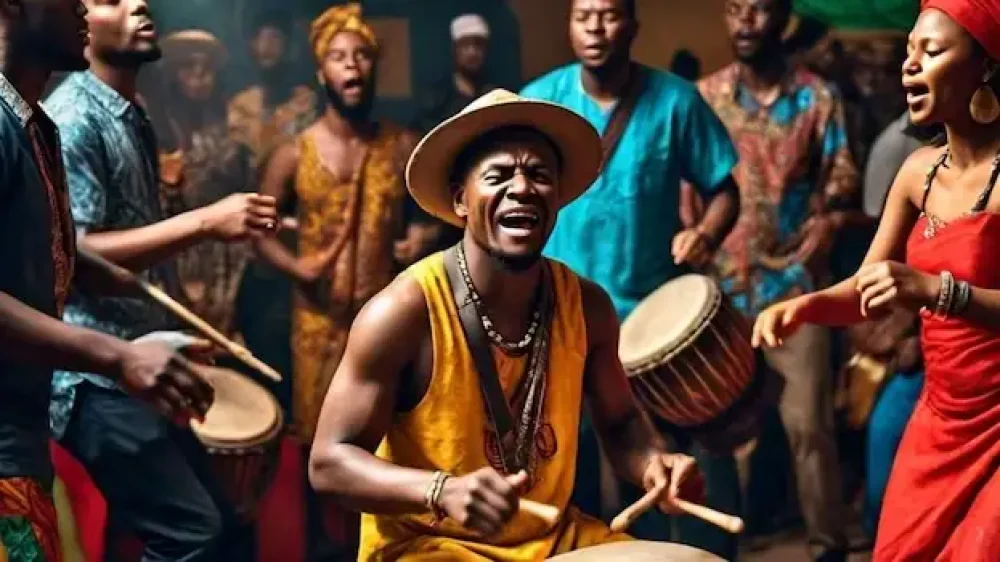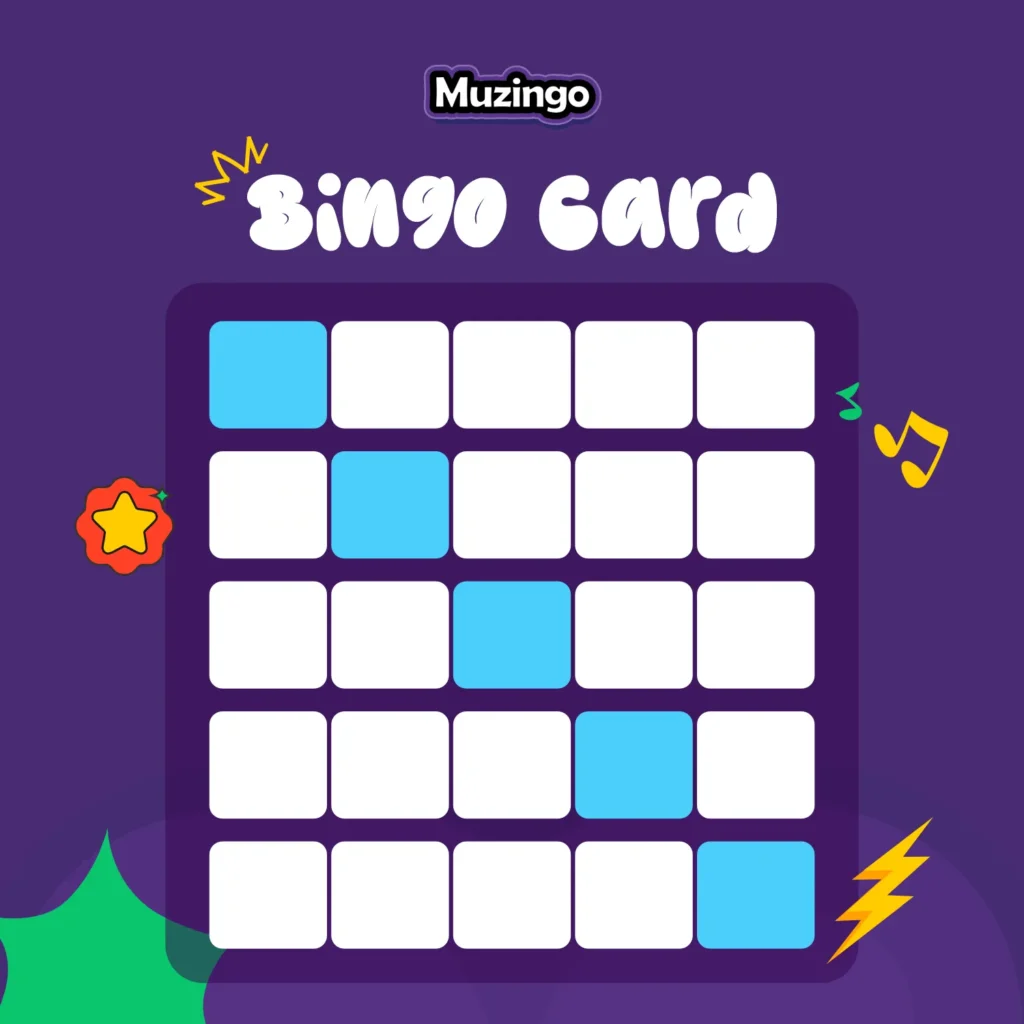If you’re looking for a fresh twist on classic games, Drag Music bingo might just be your next favorite activity. This entertaining format swaps traditional bingo numbers for popular song clips, where participants mark off tunes as they’re played. It is a great way to mix game night with musical vibes, perfect for friends, family gatherings, or team outings.
In this BlogPost, we’ll break down what makes these events so engaging, spotlight top in-person and virtual gatherings happening now, guide you on where and how to book them easily and offer practical tips for attending or even hosting your own.
RELATED BLOGPOST
- Music Bingo: A Detailed Guide for Beginners
- 10 Must-Have Tools to Host a Music Bingo Event
- 10 Creative Bingo Fundraising Prize Ideas to Boost Your Event
- How to Host a Virtual Music Bingo Night in 5 Minutes
What Makes Drag Music Bingo So Appealing?
Drag Music bingo stands out because it combines the thrill of bingo with the excitement of a music playlist. Hosts play short song snippets, and players daub their cards when they recognize the track; it’s simple yet engaging.
These events often include prizes like gift cards or fun gadgets, adding to the competition. Plus, the performers bring charisma, cracking jokes and encouraging participation, which keeps everyone involved.
Statistics from booking platforms show that virtual versions have seen a 30% rise in bookings since 2023, thanks to their convenience for remote groups. Either virtual or physical, it’s an inclusive way to enjoy music from pop to classics, suitable for adults seeking a relaxed yet lively atmosphere.
Image by Chuko Cribb on Unsplash
Why Choose Muzingo for Drag Music Bingo?
Planning or joining a Drag Music bingo event? Muzingo is your go-to platform to make it a hit. Our user-friendly tool automates the game with digital bingo cards, eliminating the hassle of paper setups.
Whether virtual or in-person gathering, Muzingo offers curated playlists like pop bangers, 80s classics, and afrobeats that keep the music bingo vibe fresh and engaging.
Supporting up to 100 players, it’s perfect for group events, from team-building to casual nights out. With free and premium plans, you can start small or go big, and shareable links make inviting friends a snap.
Top Drag Music Bingo Events
Based on recent searches and event calendars for 2025, here are some standout Drag Music bingo events. We’ve selected a mix of in-person and virtual options, focusing on highly rated ones with positive feedback for entertainment value. These are popular for their unique themes, professional hosts, and easy accessibility.
- Drag Music Bingo at Top of the East in Portland, ME (In-person): This event runs weekly on Tuesdays at 7 PM at The Westin Portland Harborview. Expect song clips from various genres, lively hosts, drinks, and prizes like gift cards. Entry is $10-15, and it’s loved for its interactive playlist and stunning venue views. Perfect for locals or visitors looking for a recurring night of fun. Check Eventbrite for tickets.
- Virtual Drag Queen Musical Bingo by Funny Business (Virtual on Zoom): Available on-demand for groups, this event is ideal for remote parties or corporate team-building. It features custom music themes (think pop hits to classic rock), lip-sync moments, and engaging hosts. Priced at $20 per person or group packages, it’s earned 5-star reviews for its high-energy vibe. Book through Funny-Business.com or call 888-593-7387.
- Musical Drag Bingo at Meeting House Tavern in Chicago, IL (In-person): Hosted by Chicago LSD Radio, this event occurs monthly on the first Wednesday from March to November 2025 (e.g., March 5, November 5) at 7 PM. It’s a fan favorite for its comedy, music-based bingo rounds, and vibrant atmosphere, with tickets at $10-20. Great for groups seeking a regular night out in Chicago. Find tickets on Eventbrite.
- Glitz & Glam Drag Bingo by Crystal Quartz Events in Ontario, Canada (In-person): This recurring series, part of their 20th Anniversary Tour, runs multiple times monthly across venues like Abe Erb (Waterloo, Kitchener), Block 3 Brewing (St. Jacobs), and The Brewhouse on the Grand (Fergus). Tickets range from $10 to $20, offering music bingo with glamorous hosts and themed prizes. Book via CrystalQuartzEvents.com.
- Drag Queen Bingo by Drag Bingo USA in Multiple U.S. Cities (In-person): This series hosts recurring events in cities like Scottsdale, Charleston, Baltimore, Cleveland, Boston, Atlanta, NYC, and more, with weekly or monthly schedules through 2025. Each event features music bingo, live performances, and free bingo cards, with tickets at $20-50. It’s perfect for those seeking regular entertainment nationwide. Check Eventbrite for specific cities and dates.
- Drag Queen Bingo at Five15 in Royal Oak, MI (In-person): Held weekly on Fridays at 7 PM (e.g., February 7, 2025, and ongoing), this event features host Victoria Sanchez, music rounds, and a lively bar atmosphere. Tickets are $15, and it’s a go-to for Metro Detroit locals. Reserve at events.five15.net.
These events highlight the variety in Drag Music bingo, from coastal U.S. spots to international gatherings. If you’re searching for drag bingo today, check local calendars, as many run weekly.
Where to Book Drag Music Bingo Events
Booking is straightforward with several reliable platforms. For virtual options, sites like Funny Business and Book Eleven offer easy scheduling and customization. In-person events are often listed on Eventbrite or venue websites, where you can grab tickets quickly.
- Eventbrite.com: Great for local and international events, like the Portland or The Hague sessions. Just search “Drag Music bingo” for upcoming dates.
- Funny-Business.com: Specializes in virtual music bingo; you can call 888-593-7387 for bookings.
- BookElevent.com: Top for group virtual events with a user-friendly interface and reviews.
- Direct Venue Sites: For places like Top of the East or Vanishing West Ciders, book via their pages for exclusive deals.
Tips: Book early as spots fill fast, especially for themed nights. Confirm age requirements (usually 18+) and any dress codes for added fun.
Image by Katherine McAdoo on Unsplash
Take Your Game Nights to the Next Level
Muzingo is a fun game where players listen to music tracks and match them to bingo cards — competing to win prizes with friends.
Play Muzingo FreeNo Card Required
Tips for Attending or Hosting Your Own
Attending? Arrive early to snag good seats and review the music themes beforehand for an edge.
For hosting, platforms like Muzingo provide playlists and tools. Ensure a good audio setup for virtual ones.
Always check for refunds and group discounts to make it budget friendly.
Drag Music bingo offers a fantastic way to enjoy games, music, and entertainment all in one. Whether you’re eyeing a virtual session or an in-person gathering, these events promise laughs and wins. Ready to try it? Check out Muzingo today to plan your next drag music bingo event for unforgettable fun!
READ MORE:
How to Host a Virtual Music Bingo Night in 5 Minutes
FAQs
What is Drag Music bingo?
It’s a game where bingo cards feature song titles or artists instead of numbers, played with music clips and hosted by lively performers.
How can I find drag bingo today?
Search on Eventbrite or local venue sites for same-day events, or opt for virtual ones that start anytime.
Is music bingo suitable for groups?
Absolutely! It’s great for teams or friends, with options for customization on booking platforms.


